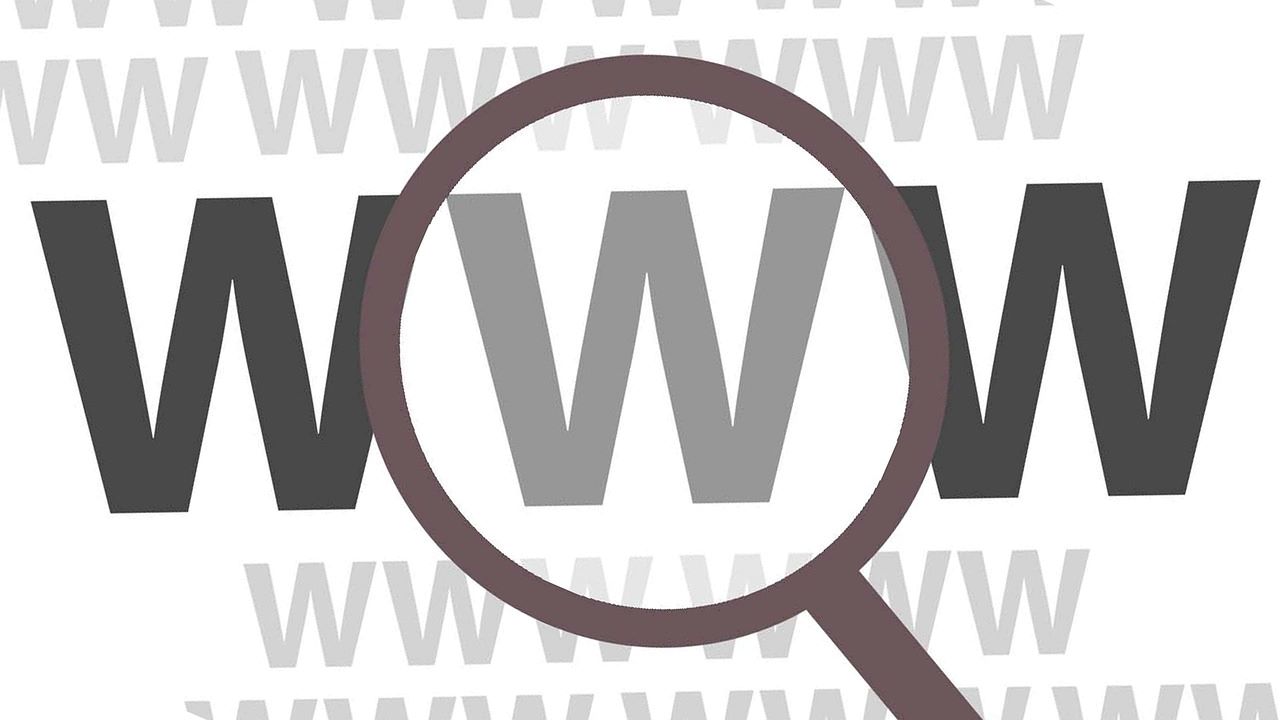Case Study: Etsy’s Strategic Approach to Domain Registration and Website Hosting
Etsy, a global marketplace for unique and creative goods, stands as a quintessential example of how strategic choices in domain registration and website hosting can significantly bolster business growth.
Launched in 2005, Etsy has grown from a small startup to a publicly traded company, hosting millions of sellers and catering to a vast international customer base.
This case study delves into Etsy’s approach to domain registration and website hosting, underscoring the pivotal role these elements played in the company’s expansion and enduring success.
Domain Registration: A Name That Resonates
Choosing a Memorable Name
Etsy’s domain name, Etsy.com, is short, memorable, and easy to spell. The name itself is distinctive, setting the brand apart from competitors.
It reflects the company’s unique marketplace, emphasizing originality and creativity.
The choice of a .com TLD (top-level domain) also contributed to the brand’s credibility and global appeal, as .com domains are universally recognized and trusted.
Brand Identity and SEO
Etsy’s domain name has become synonymous with handmade, vintage, and unique goods, reinforcing its brand identity.
While the name does not directly include keywords for SEO purposes, Etsy’s strong brand and content strategy have propelled the site to high search engine rankings for relevant terms.
The domain’s simplicity and memorability facilitate word-of-mouth marketing and repeat visits, essential components of Etsy’s growth strategy.
Website Hosting: Scaling for Global Reach
Initial Hosting Decisions
In its early days, Etsy’s website hosting needed to accommodate a rapidly growing inventory and user base, requiring scalable and reliable solutions.
The platform initially relied on third-party hosting services, which offered the flexibility to scale resources according to demand.
Transition to Cloud Hosting
As Etsy evolved, it became apparent that a more robust hosting solution was necessary to manage the increasing traffic and the complexity of the marketplace.
Etsy transitioned to cloud hosting, leveraging the scalability, reliability, and efficiency of cloud infrastructure.
This shift was instrumental in accommodating the platform’s exponential growth, allowing for dynamic resource allocation and improved site performance worldwide.
Emphasis on Performance and Reliability
Understanding the importance of website speed and uptime for user experience and sales, Etsy invested in optimizing its hosting architecture.
This included implementing Content Delivery Networks (CDNs) to reduce load times for users regardless of their geographic location, and adopting advanced caching techniques to enhance site performance.
Security and Data Protection
With millions of transactions taking place, security and data protection were paramount.
Etsy’s hosting strategy incorporated robust security measures, including SSL encryption, regular security audits, and compliance with payment industry standards.
These measures helped build trust with users, a critical factor in the platform’s growth.
Key Takeaways
Etsy’s journey underscores several key lessons in domain registration and website hosting:
- The Power of a Strong Domain Name: Etsy’s memorable and brand-aligned domain name has played a crucial role in its marketing and brand recognition efforts.
- Scalability is Crucial: Transitioning to cloud hosting enabled Etsy to scale efficiently, managing traffic spikes and growing inventory without compromising on performance.
- Performance and Security are Non-negotiable: Investments in site speed, reliability, and security have been central to Etsy’s ability to attract and retain users.
Etsy’s strategic approach to domain registration and website hosting has been a cornerstone of its success.
By selecting a domain name that resonates with its brand identity and adopting a scalable, secure, and high-performance hosting solution, Etsy has been able to support its growth from a niche marketplace to a global e-commerce platform.
This case study exemplifies the critical role that thoughtful decisions in these foundational aspects can play in the long-term success and scalability of an online business.
Domain and Hosting Selection Checklist
Launching an online business starts with two critical steps: choosing a domain name and selecting a hosting provider.
These foundational elements set the stage for your website’s success, influencing everything from brand perception to site performance.
Use this comprehensive checklist to guide your decision-making process and ensure you’ve considered all essential aspects of domain and hosting selection.
Domain Name Selection
- Reflects Your Brand: Ensure the domain name accurately represents your business and brand identity.
- Easy to Remember: Choose a name that is short, memorable, and easy to spell to help customers find you easily.
- Avoids Hyphens and Numbers: These can confuse customers and make your domain harder to communicate verbally.
- Uses the Correct Domain Extension: Prefer .com if available, as it’s the most recognized and trusted. However, consider other TLDs (.net, .store, .shop) if they better suit your business or if .com isn’t available.
- Keyword Consideration: Incorporate relevant keywords if it makes sense for your brand and SEO but don’t compromise the brandability of your domain.
- Checks for Trademarks: Ensure your chosen domain doesn’t infringe on any existing trademarks to avoid legal issues.
- Searches for Availability: Use a domain registration platform to check if your desired domain name is available.
- Considers Future Expansion: Make sure the domain doesn’t limit your business to a particular niche unless you’re sure.
- Registers Similar Domains: Consider registering variations and common misspellings of your domain to protect your brand.
- Opts for Domain Privacy Protection: To keep your registration details confidential and protect against spam.
Hosting Provider Selection
- Assesses Uptime Guarantees: Look for a provider with a high uptime guarantee (99.9% or above) to ensure your site remains accessible.
- Evaluates Performance: Ensure the hosting service offers fast load times and can handle your expected traffic levels.
- Considers Scalability: Choose a provider that allows you to easily upgrade your hosting plan as your business grows.
- Reviews Security Measures: Check for SSL certificates, regular backups, malware protection, and other security features.
- Understands the Support Offered: Confirm that 24/7 customer support is available via multiple channels (phone, email, live chat).
- Compares Pricing Plans: Understand the pricing structure, including any hidden costs or fees for exceeding bandwidth or storage limits.
- Checks for E-commerce Features: Ensure the hosting provider supports e-commerce functionalities like shopping carts and payment processing.
- Verifies Compatibility: Make sure the hosting service is compatible with your chosen e-commerce platform or content management system (CMS).
- Researches Customer Reviews: Look for feedback from other users, especially regarding reliability, customer service, and technical support.
- Investigates Backup and Restore Policies: Understand how often backups are taken and how easily you can restore your site if needed.
By thoroughly vetting your domain name and hosting options against this checklist, you’ll set a solid foundation for your online business, ensuring it’s well-positioned for growth, performance, and security.
Quiz: Understanding Domain Registration and Website Hosting
This quiz is designed to assess your understanding of the key concepts related to domain registration and website hosting, crucial steps in establishing an online presence for any business.
Select the best answer for each question based on the information provided in previous discussions.
Question 1
What is the primary purpose of domain registration?
- A) To secure a server for website hosting
- B) To obtain a certificate for data encryption
- C) To reserve a website address (URL) for your online presence
- D) To create email addresses for your business
Question 2
Which of the following statements best describes shared hosting?
- A) It offers dedicated server resources to a single user.
- B) It allows multiple websites to share server resources on a single server.
- C) It provides virtual private servers for enhanced privacy.
- D) It distributes website data across multiple interconnected servers.
Question 3
Why is it important to choose a domain name that’s easy to remember and spell?
- A) To reduce the cost of domain registration
- B) To improve website loading speed
- C) To enhance brand recognition and make it easier for customers to find your site
- D) To ensure server compatibility
Question 4
What does SSL certification provide for a website?
- A) Faster server speeds
- B) Unlimited storage space
- C) Encryption for data transferred between the site and its visitors
- D) A direct link to search engines for better indexing
Question 5
Which factor should NOT influence your choice of a web hosting service?
- A) The hosting service’s uptime guarantee
- B) The color scheme of the hosting provider’s website
- C) The availability of customer support
- D) The scalability options offered by the provider
Question 6
What is the significance of the Top-Level Domain (TLD) in a domain name?
- A) It specifies the type of server used for hosting.
- B) It indicates the highest level of domain hierarchy in the Internet’s naming system.
- C) It encrypts data sent to and from the domain.
- D) It represents the physical location of the website’s server.
Question 7
Cloud hosting is preferred for which of the following scenarios?
- A) Websites with minimal changes and low visitor traffic
- B) Businesses looking for the cheapest hosting option available
- C) E-commerce sites experiencing variable traffic or rapid growth
- D) Websites that require a single static IP address
Question 8
Domain privacy protection is used to:
- A) Speed up the domain registration process
- B) Hide the domain owner’s personal information from the public WHOIS database
- C) Encrypt the website’s data
- D) Ensure that the domain name is SEO-friendly
Question 9
Which hosting option provides dedicated resources and the highest level of control over the server?
- A) Shared hosting
- B) VPS hosting
- C) Dedicated hosting
- D) Cloud hosting
Question 10
Before finalizing a domain name, it is important to:
- A) Check for trademarks to avoid legal issues
- B) Ensure it contains at least one number
- C) Select a domain name with at least three hyphens
- D) Choose a name unrelated to your business for uniqueness
Answers:
- C) To reserve a website address (URL) for your online presence
- B) It allows multiple websites to share server resources on a single server.
- C) To enhance brand recognition and make it easier for customers to find your site
- C) Encryption for data transferred between the site and its visitors
- B) The color scheme of the hosting provider’s website
- B) It indicates the highest level of domain hierarchy in the Internet’s naming system.
- C) E-commerce sites experiencing variable traffic or rapid growth
- B) Hide the domain owner’s personal information from the public WHOIS database
- C) Dedicated hosting
- A) Check for trademarks to avoid legal issues
This quiz helps reinforce the essential aspects of domain registration and website hosting, ensuring a solid foundational understanding for successfully launching and managing an online presence.













